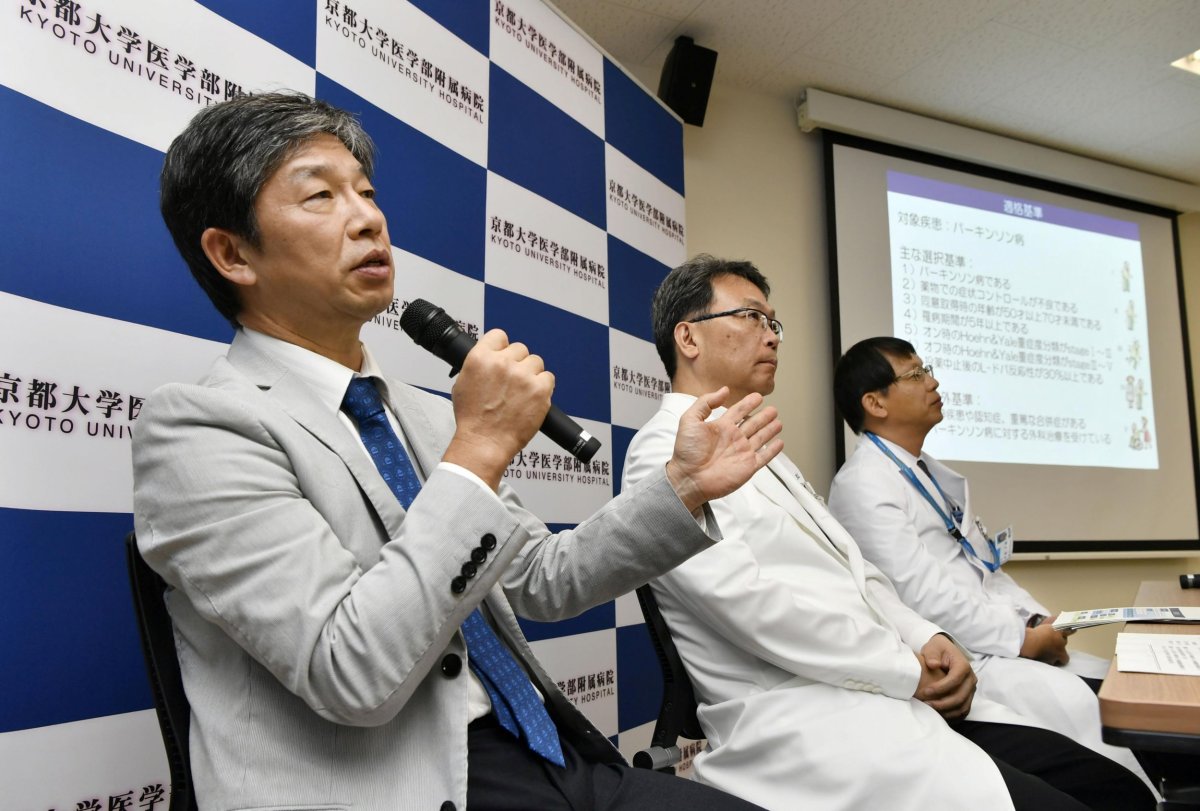A Japanese research team announced it will start human clinical trials for a new Parkinson's disease treatment.
On Monday, a team from Kyoto University's Center for iPS Cell Research and Application announced it will begin testing the new treatment on humans after successful rounds of animal trials. The injected treatment uses stem cells to help those with Parkinson's diseases and received approval from the government.
Parkinson's disease affects about 10 million around the world, including 1 million in the United States, according to the Parkinson's Foundation. Parkinson's disease reduces neurons in the brain that produce dopamine. This loss of cells causes tremors in the feet and hands. It also causes stiffness in someone's body. Treatments exist for those symptoms, but scientists haven't been able to find a cure. This treatment could be a breakthrough option for those with Parkinson's disease.
The team plans to inject induced Pluripotent Stem (iPS) cells into the patient's brains. The 5 million injected cells have the potential to develop into any cell in the body—including the neurons that produce dopamine. The iPS cell technology was created at Kyoto University in 2006 and can be generated from adult cells, which means the treatment doesn't require the use of embryonic stem cells. The creator of the technology, Shinya Yamanaka, was awarded a Nobel Prize in 2012 for the finding.
Monkeys were used in the last round of trials. Over two years of observation, the scientists found that the movement of monkeys with Parkinson's disease improved and no tumors that could turn cancerous developed in the brain.
The human trial will be led by doctors who will monitor the trial's effectiveness and safety. It begins August 1 with seven patients and is only open to those who live in Japan and have Japanese insurance. While iPS cells can be created from someone's own cells so that they would be less likely to get rejected by the patient's body, in this trial the cells were created by third-party donors. The patients will receive tacrolimus, an immunosuppressant that can help avoid rejection of the cells.

Using stereotaxic brain surgery, a way of injecting something into the brain and has been used in Parkinson's treatments in the past, the team can ensure placement of the iPS cells into the left and right sides of the patient's putamen. The putamen regulates movements and influences learning in people.
IPS cells could also be used in treatments for other diseases, like heart failure and age-related macular degeneration.
Uncommon Knowledge
Newsweek is committed to challenging conventional wisdom and finding connections in the search for common ground.
Newsweek is committed to challenging conventional wisdom and finding connections in the search for common ground.
About the writer
To read how Newsweek uses AI as a newsroom tool, Click here.








